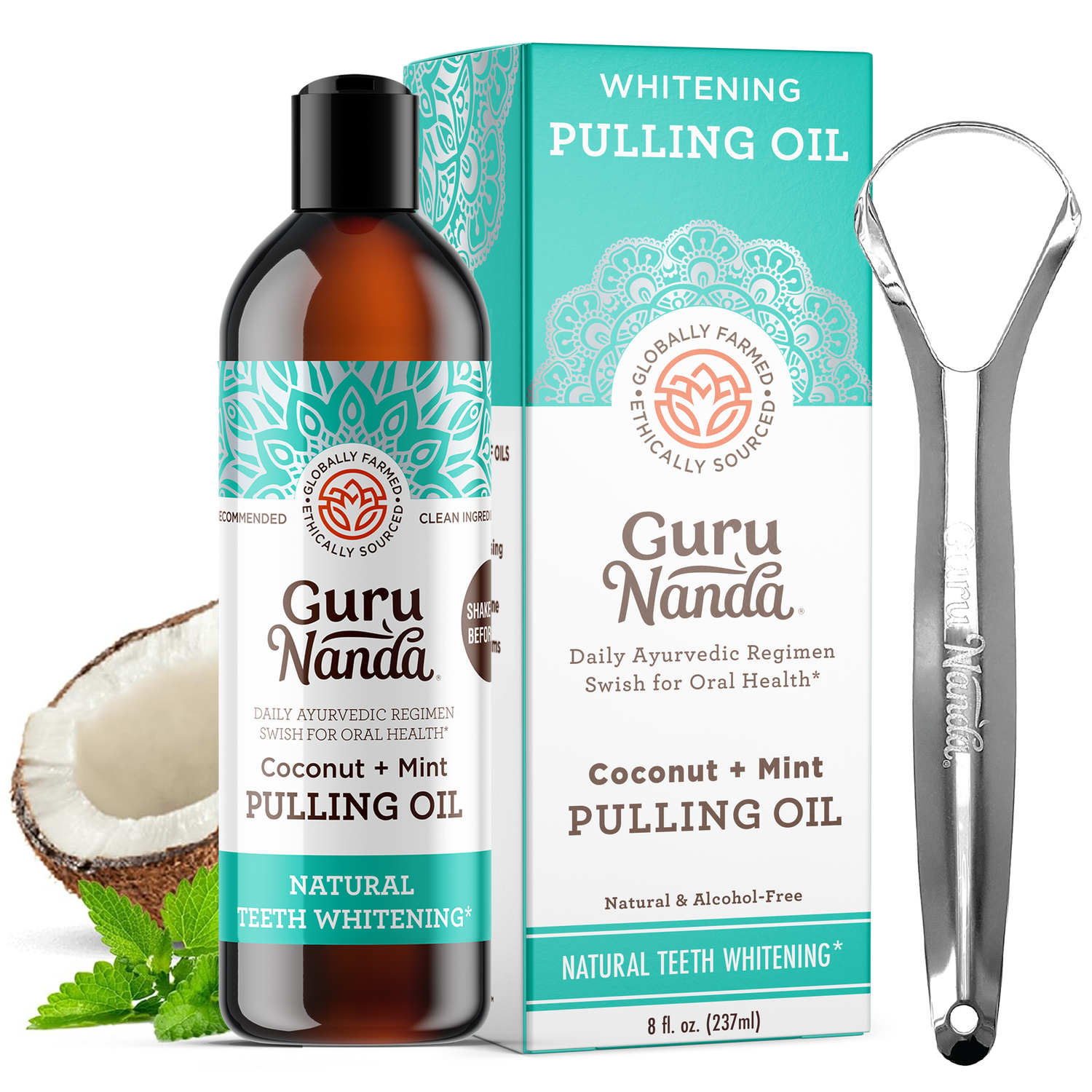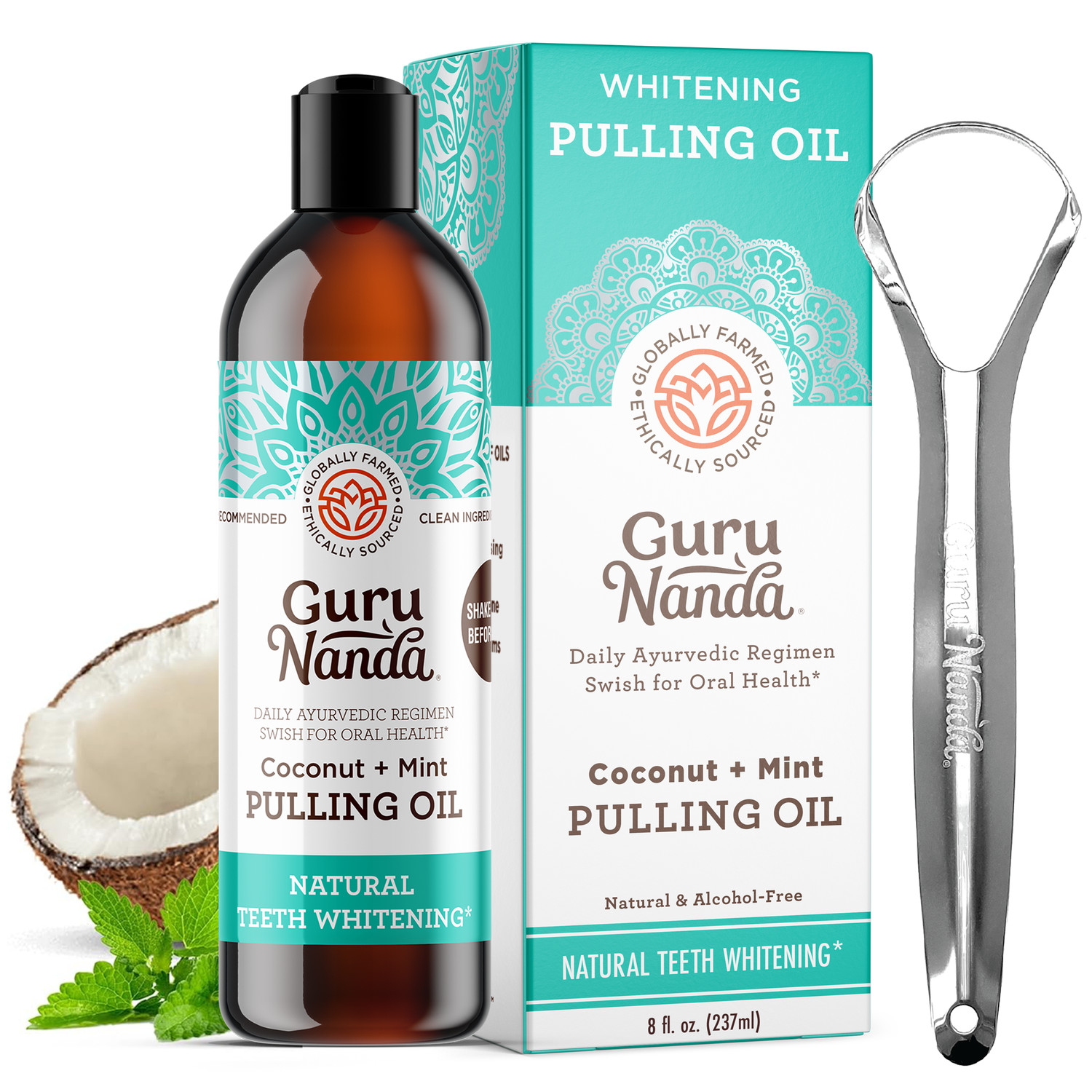- What is Black Seed Oil?
- Extraction Methods
- Black Cumin Seed Oil Benefits
- Black Seed Oil Dosage
- Potential Side Effects & Risks
- Conclusion
- FAQs
- References
Explore the timeless secrets of health and wellness with an in-depth look into black seed oil through this blog. Harvested from the Nigella sativa plant, black seed oil has enriched traditional medicine for centuries, offering a natural remedy to a myriad of health conditions. From enhancing skin health to supporting immune function, this guide delves into the science-backed benefits, extraction methods, and prudent usage of black seed oil, ensuring, you harness its potential with informed confidence.
What is Black Seed Oil?
Black seed oil, a treasure of traditional medicine for over 2,000 years, is derived from the Nigella sativa plant's seeds, commonly known as black cumin, kalonji, black caraway, and Roman coriander. This valuable oil, native to Eastern Europe, Western Asia, the Middle East, Southern Europe, and Northern Africa, is celebrated for treating various conditions, thanks to its rich composition of antioxidants and bioactive compounds like thymoquinone. These elements have demonstrated efficacy against headaches, back pain, high blood pressure, and infections, underscoring its broad medicinal prowess. [1][2][3]
The Nigella sativa plant, with its distinct white or blue-tinged flowers, is not just visually striking but also a source of potent phytochemicals. Its seeds contain a complex chemical makeup that includes not only thymoquinone but also alkaloids, saponins, flavonoids, and fatty acids, crucial for detoxifying the body and mitigating ailments. The application of black seed oil in traditional systems such as Unani, Ayurveda, and Siddha highlights its effectiveness in enhancing the health of the respiratory, digestive, cardiovascular, and immune systems, promoting overall well-being. Its therapeutic potential also extends from boosting the immune system to combating cancer and alleviating allergic reactions, showcasing why black seed oil remains a revered natural remedy. [4][5][6][7][8][9][10]
Extraction Methods: Superiority of Cold-Pressed Black Seed Oil
Extracting oil from the black seeds of the Nigella sativa plant involves several methods, with cold pressing being the most favored due to its ability to preserve the oil's nutritional profile and therapeutic properties. Cold-pressed black seed oil is produced by mechanically pressing the seeds at a low temperature, ensuring that the essential fatty acids, vitamins, and antioxidants remain intact. This method contrasts with other extraction techniques that may involve heat or chemical solvents, potentially degrading the oil's quality and diminishing its health benefits.
Cold pressing yields a pure, unrefined oil that retains its natural aroma, flavor, and nutritional value, making it superior for health and wellness applications. In contrast, other methods might produce more refined oil, which, while still beneficial, may lack the full spectrum of nutrients found in cold-pressed varieties. The choice of extraction method plays a crucial role in determining the oil's efficacy. Cold-pressed black seed oil is often sought after for its higher quality and enhanced health benefits.
Black Cumin Seed Oil Benefits
Skin Health and Acne Reduction
Combatting Acne: Black seed oil's antimicrobial and anti-inflammatory properties make it a potent natural remedy for acne. A study demonstrates its effectiveness, where a topical application of a black seed extract gel led to a 78% reduction in acne severity over 60 days, showcasing the oil's significant therapeutic potential in skin care. [11][12]
Eczema Symptom Alleviation
Easing Eczema: Black seed oil has shown efficacy comparable to betamethasone cream in reducing the severity of hand eczema. This, along with animal studies suggesting its role in reducing eczema-related inflammation, points to its therapeutic potential in managing this condition. However, more human studies are needed for conclusive evidence. [13][14]
Vitiligo Management
Restoring Skin Pigmentation: For individuals with vitiligo, black seed oil has emerged as a hopeful treatment option. A study with 33 participants found that topical application of black seed oil improved pigmentation across various body areas within six months. This effect is thought to be due to the oil's ability to distribute melanin more evenly, offering a natural approach to managing this skin condition. [15][16]
Wound Healing
Enhancing Recovery: The presence of thymoquinone in black seed oil promotes tissue growth and wound healing. Animal studies highlight its effectiveness in treating burns, excisions, and diabetic wounds, attributing these benefits to its anti-inflammatory, antioxidant, and antibacterial properties. These findings open avenues for exploring its healing capabilities in humans, particularly in increasing collagen formation for better wound repair. [17]
Hair Health
Nourishing Hair: Black seed oil is celebrated for its positive impact on hair health, credited to its antimicrobial and antioxidant qualities. While extensive research is pending, its inclusion in hair care formulations aims to enhance hair strength, shine, and overall health, marking it as a beneficial ingredient for hair maintenance. [18]
Blood Sugar Regulation
Diabetes Care: Evidence supports black seed oil's benefit in stabilizing blood sugar levels, marking it as a valuable supplement for individuals with diabetes. Studies indicate improvements in insulin sensitivity and fasting blood glucose, proposing the oil as an adjunct therapy in diabetes management. [19]
Cancer Research Insights
Exploring Anticancer Potential: Preliminary research indicates that thymoquinone in black seed oil can induce cell death in several cancer cell types, including brain, leukemia, and breast cancer. While these findings are promising, translating this potential into effective human cancer treatment requires more in-depth studies. [20]
Liver and Kidney Protective Effects
Organ Health Protection: Black seed oil's antioxidant properties are known to shield the liver and kidneys from oxidative stress, which is linked to various diseases. Studies demonstrate its effectiveness in reducing liver and kidney damage and improving their function, suggesting a protective benefit against organ damage. [21][22]
Gastrointestinal Health
Digestive System Support: With its anti-inflammatory properties, black seed oil offers relief from common gastrointestinal symptoms like bloating, constipation, etc., and may have preventive effects on several digestive disorders like functional and motility disorders. Clinical studies have shown promise, but more research is needed to fully understand its benefits in this area. [23]
Hypertension Management
Controlling Blood Pressure: Studies have highlighted black seed oil's potential in managing hypertension, which is one of the critical components of cardiovascular care. However, outcomes vary, and it should be used cautiously, complementing traditional treatments under medical advice. [24]
Black Seed Oil Dosage
Incorporating black seed oil into your daily wellness routine can be a seamless and beneficial practice, especially with the pure, cold-pressed black seed oil variety offered by GuruNanda. For those looking to enjoy the myriad health benefits without the hassle of pills, the recommended serving for adults is 1 dropper full (1 ml), taken once or twice daily, based on the guidance of a healthcare professional.
Administering the oil is straightforward: dispense a dropper full directly into your mouth, swallow, and follow up with up to 8 fluid ounces of lukewarm water to maximize absorption and hydration.
For those exploring topical applications, black seed oil can also be a skin and haircare savior. When applying to the skin, consider diluting with a carrier oil (like coconut or jojoba oil) to minimize potential irritation. For hair, a few drops can be massaged into the scalp or mixed with your favorite shampoo to harness its nourishing benefits. Always store the bottle in a cool, dark place to maintain its potency.
Potential Side Effects & Risks of Black Seed Oil
Moderation and Digestive Side Effects
Black seed oil is safe for culinary uses and potentially beneficial in moderate therapeutic doses for up to 3 months. However, doses exceeding this can lead to nausea and bloating for some users, highlighting the need for careful dosage management. [25]
Topical Use and Allergic Reactions
Before applying black seed oil topically, it's crucial to conduct a patch test to mitigate the risk of allergic reactions. It's also important to avoid applying the oil to sensitive areas of the body. This approach ensures a cautious use of black seed oil, balancing its potential benefits with the need to prevent adverse reactions.
Medication Interactions
Individuals on medications processed via the cytochrome P450 pathway, such as warfarin and beta-blockers, should exercise caution, as black seed oil can affect drug metabolism. [26]
Pregnancy, Breastfeeding, and Long-term Use
Due to the limited research on black seed oil, pregnant or breastfeeding women should be cautious while taking black seed oil. Furthermore, it's always recommended to consult a healthcare professional to ensure the safety of both the mother and child.
Conclusion
Black seed oil stands as a testament to nature's power in promoting health and wellness. Through understanding its benefits, extraction processes, and mindful application, you can integrate this ancient remedy into your modern life with ease. However, it's crucial to approach its use with awareness of potential side effects and interactions with medications. As we've explored, black seed oil offers more than just health benefits—it provides a holistic approach to nurturing body and mind. Embrace this guide as your go-to resource for incorporating black seed oil into your wellness journey, embracing its rich legacy with every drop.
FAQs
Q: What is black seed oil good for?
A: Black seed oil is good for supporting the immune system, may help in maintaining gut health, promoting healthy joints and bones, and aiding in reducing inflammation in the body.
Q: How does Vitamin D enhance black seed oil?
A: Vitamin D, added to black seed oil, enhances its health benefits by supporting bone health, helping in immunity boost, and aiding in the absorption of calcium and phosphorus. Products like GuruNanda Black Seed Oil stand out because they combine the nutritional benefits of cold-pressed black seed oil with Vitamins D3, E, and K2 offering a potent blend for enhanced health and wellness.
Q: How should I take black seed oil?
A: Black seed oil can be taken orally in capsule form or as a liquid. The recommended dosage for adults is approximately 1 ml, two times daily. It can also be applied topically for skin conditions or mixed with a carrier oil for hair and scalp treatments.
Q: Are there any side effects of taking black seed oil?
A: While black seed oil is generally safe for most people, it can cause allergic reactions, digestive issues like bloating and nausea, or low blood pressure in sensitive individuals. Always start with a small dose to see how your body reacts and consult a healthcare provider for any issues.
Q: Can black seed oil interact with medications?
A: Yes, black seed oil may interact with medications metabolized by the cytochrome P450 pathway, such as warfarin and some beta-blockers. Consult your healthcare provider before using black seed oil if you're on medication.
Q: Is black seed oil safe during pregnancy and breastfeeding?
A: Due to limited research, it's recommended that pregnant and breastfeeding women avoid using black seed oil or consult with a healthcare provider before using it.
Q: Can black seed oil help with weight loss?
A: Some studies suggest that black seed oil may help with weight loss by reducing appetite and glucose absorption in the intestine. However, it should be used as a supplement to a balanced diet and regular exercise, not as a sole weight loss method. [27]
Q: Does black seed oil improve hair and skin health?
A: Yes, the black seed oil is known to improve skin and hair health due to its antimicrobial and anti-inflammatory properties. It may help treat acne, eczema, and psoriasis and promote healthier hair and scalp when applied topically.
Q: How long does it take for black seed oil to work?
A: The effects of black seed oil can vary depending on the individual and the condition being treated. Some people may notice improvements within a few days, while for others, it might take several weeks to see significant benefits.
Q: Can black seed oil cure diseases?
A: While black seed oil has therapeutic properties and may help manage symptoms of various conditions, it should not be considered a cure for diseases. Always consult with a healthcare provider for medical diagnosis and treatment.
Q: How should I store black seed oil?
A: Black seed oil should be stored in a cool, dark place away from direct sunlight to maintain its potency. Once opened, it's best to keep the bottle tightly closed and use the oil within six months for optimal freshness.
[1]-https://npgsweb.ars-grin.gov/gringlobal/taxon/taxonomydetail?id=25337
[2]-https://www.ncbi.nlm.nih.gov/pmc/articles/PMC6535880/
[3]-https://www.ncbi.nlm.nih.gov/pmc/articles/PMC4013187/
[4]-https://www.ncbi.nlm.nih.gov/pmc/articles/PMC9862941/
[5]-https://www.ncbi.nlm.nih.gov/pmc/articles/PMC7153348/
[6]-https://www.ncbi.nlm.nih.gov/pmc/articles/PMC7121976/
[7]-https://www.ncbi.nlm.nih.gov/pmc/articles/PMC5465813/
[8]-https://www.ncbi.nlm.nih.gov/pmc/articles/PMC9496588/
[9]-https://www.ncbi.nlm.nih.gov/pmc/articles/PMC3642442/
[10]-https://www.ncbi.nlm.nih.gov/pmc/articles/PMC4052177/
[11]-https://www.ncbi.nlm.nih.gov/pmc/articles/PMC4387228/
[12]-https://pubmed.ncbi.nlm.nih.gov/32548864/
[13]-https://pubmed.ncbi.nlm.nih.gov/23198836/
[14]-https://pubmed.ncbi.nlm.nih.gov/30031280/
[15]-https://pubmed.ncbi.nlm.nih.gov/31025474/
[16]-https://pubmed.ncbi.nlm.nih.gov/32017656/
[17]-https://www.ncbi.nlm.nih.gov/pmc/articles/PMC7312523/
[18]-https://www.ncbi.nlm.nih.gov/pmc/articles/PMC5735686/
[19]-https://www.ncbi.nlm.nih.gov/pmc/articles/PMC6950756/
[20]-https://www.ncbi.nlm.nih.gov/pmc/articles/PMC5052360/
[21]-https://pubmed.ncbi.nlm.nih.gov/34445781/
[22]-https://pubmed.ncbi.nlm.nih.gov/30873671/
[23]-https://www.ncbi.nlm.nih.gov/pmc/articles/PMC4884214/
[24]-https://pubmed.ncbi.nlm.nih.gov/27512971/
[25]-https://www.ncbi.nlm.nih.gov/pmc/articles/PMC4884214/






